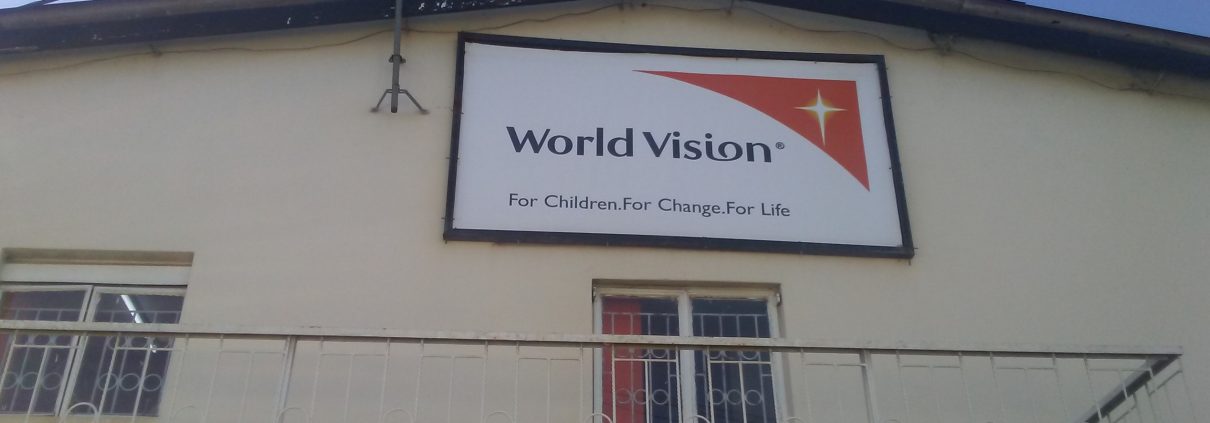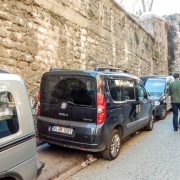Zambia: Impressions On Arrival
By Corina Post, MSW ‘17
At first, all seems “normal” (similar to L.A.). The streets are paved, traffic laws are abided. People drive Jeeps, Hyundais, Hondas, Toyotas, and even some Audis. We pass by a Jaguar dealership. I am reassured when I’m picked up in a World Vision Toyota. Buildings are developed, glass, and there are adds for Pepsi-Co products and smartphones. I felt not too far from home initially, until subtleties reminded me of the privileges the western world holds. One of the first small details I noticed were people walking on the runway from the plane to the port. Even though only 500m, this was a traveling first for me, usually there are very strict protocols about this. Secondly, the border took about 90 minutes, which included several tourists dropping their passports in a gap at the shifty border desks being fished out in Macgyver fashions. Needless to say, coming from London Heathrow, these systems were neither the most modern nor efficient systems. Not a big deal, I tell myself.
Subtle things reminded me I was not at home. At a busy intersection, a few goods sellers were canvassing the cars. This is relatively normal for parts of L.A., however the driver locked the doors. Little differences reminded me of home privilege. During the car ride, there was an advert for a giveaway for a sweepstake from a bank. This also reminded me of the U.S. The prize? One thousand bags of concrete. Seeing sewage burned as means of waste disposal and knowing concrete is its own commodity were the first true reminders that I was no longer in Kansas, I was in Africa.
People talk to you on the street, albeit mostly men, initially. The work environment at World Vision is distinct from any U.S. workplace I have experienced. There seems to be more horizontal rather than vertical collaboration. Everyone is friendly, people bring their children around and talk about god frequently. More on religion and politics later.
The subtleties continue. I honestly see far less homelessness than in Westwood and no one asks me for money. I realize there is some understanding that with my pale skin in Zambia, I have likely come for an NGO or missionary project, which I have. People seem to be quite kind to me, honestly kinder than I have ever been received abroad. However, it is still week one. I went to an exercise class and the teacher offered to give me a ride home. I ask people for directions and they offered to walk with me. It is a definite change of pace from the “time is money” capitalist culture in the U.S. The subtleties continue. I am fortunate to have a compensated house by World Vision with work chauffeurs. I keep asking them what my address is and everyone just uses references to where I live, “across from xx”, no address. All the houses and buildings have walls and wiring, despite everyone constantly saying how safe Lusaka is, I am left wondering.
Another curiosity I must note is the gross disservice we as global citizens practice in the homogenization of whole continents. Having lived in Spain for some time, I can say with authority lumping it with “Europe” gives no accuracy to the wealth of thousands of years of culture, laws, traditions, demographics, etc. of the diverse region. Similarly, in the U.S., I believe many citizens would feel aversion to being homogenized and perceived to hold identical beliefs to say, any particular presidential candidate. I am aware of my lack of exposure to the diversities of Africa. Many Americans, myself included, are guilty of ignorance when it comes to knowing the distinctions among countries, cultures, laws, issues, and strengths of Africa. This drives me to gain as much exposure as possible to share back home. For example, most people in Lusaka speak four languages, how impressive!
Lastly, I have never felt like I have stuck out more. Typically, within previous travels, I see ex-patriates with some frequency. I imagine this is the daily reality for countless individuals and immigrant families living in foreign places, feeling as though no one understands their cultures, mannerisms, food, language, etc. I am again humbled and reminded of my privilege.









